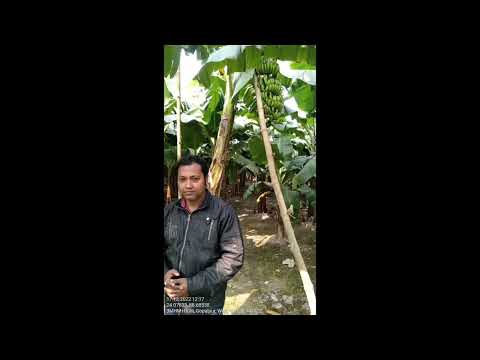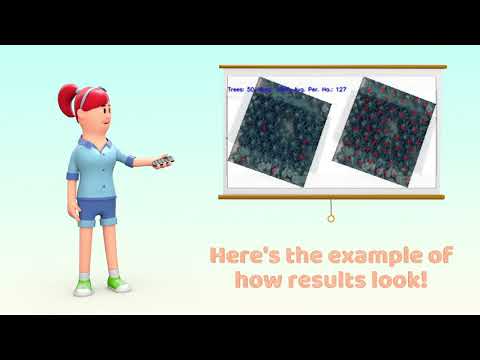Spartanburg County Manufacturing Shakeup: Agricultural Tire Plant Closure Impacts 90 Workers Amid Industry Shifts
“Spartanburg County’s agricultural tire plant closure affects 90 workers, highlighting shifts in US manufacturing trends.”
In a significant development that has sent ripples through Spartanburg County’s manufacturing sector, we are witnessing a major tire manufacturing plant closure that is set to impact the agricultural sector and local economy profoundly. This strategic move, part of a broader North American manufacturing optimization plan, will result in substantial Spartanburg County job layoffs. The facility, which specialized in agricultural tire production, is scheduled to close by April, affecting 90 workers. This shutdown follows recent trends in the US manufacturing footprint, including changes in the textile industry.
As we delve into this critical issue, we’ll explore the implications of this closure, its context within the broader manufacturing landscape, and the potential ripple effects on farming communities and equipment suppliers. Our comprehensive analysis will provide insights into the economic impact of factory closings and the changing face of US manufacturing.

The Closure: A Closer Look
Yokohama TWS North America, a global tire manufacturer, has announced the permanent closure of its facility in Spartanburg County. This industrial facility shutdown is scheduled to be completed by April 19, according to a WARN layoff notification report filed with SC Works. The closure is part of the company’s recently announced strategic program aimed at optimizing production capacities and considering its manufacturing and logistics footprint in the USA.
Marc Margossian, business development director for Yokohama TWS North America, stated, “This program represents a significant step toward optimizing production capacities and considering our manufacturing and logistics footprint in the USA.” The facility, which has been operational for around 10 years, specialized in the manufacture of radial agricultural tires. It was one of the company’s two facilities in North America, with the other located in Charles City, Iowa.
The Impact on Workers and the Community
The closure of this agricultural tire plant will directly impact 90 workers, leading to significant job losses in Spartanburg County. This development raises crucial questions about the future of industrial facilities and the need for worker retraining programs in the region. The Worker Adjustment and Retraining Notification Act mandates employers to provide notice 60 days before closings and mass layoffs, ensuring that affected employees have some time to prepare for the transition.
Margossian has assured that Yokohama TWS North America will take care of the workers it’s laying off, stating, “We’ll be obviously adhering to applicable laws and doing right by our employees the best we can.” However, the sudden loss of 90 jobs will undoubtedly have a significant impact on the local economy and the affected families.
Context: Recent Manufacturing Trends in Spartanburg County
This closure doesn’t occur in isolation but is part of a broader trend of US manufacturing footprint changes. It follows other recent developments in the region’s manufacturing sector. For instance, Carolina Cotton Works, a textile manufacturer, closed a plant in Cherokee County in July 2024, indicating ongoing shifts in the textile industry in South Carolina.
Despite these closures, it’s important to note that Spartanburg County has seen substantial economic growth and investment in recent years. The county reported nearly $1 billion in pledged investment in 2024, showcasing its resilience and ability to attract new businesses even as some traditional industries face challenges.
The Changing Landscape of Agricultural Tire Production
The closure of this radial agricultural tire facility in Spartanburg County is not just a local issue but reflects broader changes in the agricultural tire market. As farming practices evolve and agricultural equipment becomes more sophisticated, the demand for specialized tires is also changing. This shift may have contributed to the decision to close the Spartanburg plant as part of Yokohama TWS North America’s optimization strategy.
“The radial agricultural tire facility in South Carolina is set to close by April, impacting local economy and farming sectors.”
The agricultural sector, which relies heavily on these specialized tires, may feel the ripple effects of this closure. Farmers and equipment suppliers in the region might need to adjust their supply chains and potentially face changes in pricing or availability of agricultural tires. This situation underscores the interconnectedness of manufacturing and agriculture, two crucial sectors of the American economy.
Economic Impact Analysis
To better understand the implications of this closure, let’s examine a comparative analysis of recent manufacturing changes in Spartanburg County:
| Manufacturing Sector | Company Name | Year of Change | Number of Jobs Affected | Estimated Annual Economic Impact (in millions USD) | Status |
|---|---|---|---|---|---|
| Agricultural Tire | Yokohama TWS North America | 2025 | 90 | 15-20 | Closed |
| Textile | Carolina Cotton Works | 2024 | 75 | 10-15 | Closed |
| Automotive | BMW Manufacturing | 2024 | 500 | 100-150 | Expanded |
This table illustrates the varied landscape of manufacturing changes in Spartanburg County. While some sectors like automotive have seen growth, others like agricultural tire and textile manufacturing have experienced contractions. The closure of the Yokohama TWS North America plant, while significant, is part of a complex economic picture that includes both growth and decline across different sectors.
The Role of Technology in Modern Agriculture
As we consider the impact of this manufacturing closure on the agricultural sector, it’s crucial to recognize the increasing role of technology in modern farming practices. Companies like Farmonaut are at the forefront of this agricultural revolution, offering innovative solutions that can help farmers adapt to changing market conditions and optimize their operations.
Farmonaut provides advanced, satellite-based farm management solutions via android, iOS, web/browser App, and API. Their mission is to make precision agriculture affordable and accessible to farmers worldwide by integrating innovative technology and data-driven insights into traditional farming practices.
Some of the key technologies offered by Farmonaut include:
- Satellite-Based Crop Health Monitoring
- Jeevn AI Advisory System
- Blockchain-Based Product Traceability
- Fleet and Resource Management
- Carbon Footprinting
These technologies can help farmers make informed decisions about crop management, resource allocation, and sustainability practices, potentially mitigating some of the challenges posed by changes in the agricultural supply chain, such as the closure of the tire manufacturing plant.
The Future of Manufacturing in Spartanburg County
While the closure of the Yokohama TWS North America plant is undoubtedly a setback for Spartanburg County’s manufacturing sector, it’s essential to view this development within the broader context of the county’s economic landscape. Despite this closure and recent changes in the textile industry, Spartanburg County has demonstrated remarkable resilience and growth potential.
The nearly $1 billion in pledged investment reported in 2024 suggests that the county remains an attractive destination for businesses across various sectors. This influx of investment could potentially create new job opportunities and help offset the losses from recent closures.
Moreover, the changing nature of manufacturing, driven by advancements in technology and shifts in global market demands, presents both challenges and opportunities for regions like Spartanburg County. As traditional manufacturing sectors face pressures, new industries are emerging, often requiring different skill sets and offering new types of employment opportunities.
Worker Retraining and Skills Development
The closure of the agricultural tire plant underscores the critical need for worker retraining programs in Spartanburg County and beyond. As manufacturing processes evolve and new industries emerge, there’s an increasing demand for workers with updated skills and knowledge.
Local and state governments, in collaboration with educational institutions and private sector partners, can play a crucial role in developing and implementing retraining programs. These initiatives could focus on areas such as:
- Advanced manufacturing techniques
- Industrial automation and robotics
- Data analysis and interpretation
- Sustainable manufacturing practices
- Digital literacy and technology skills
By investing in these programs, Spartanburg County can help its workforce adapt to the changing job market, potentially attracting new industries and fostering economic resilience.
Explore Farmonaut’s API for advanced agricultural data
The Ripple Effects on Farming Communities
The closure of the agricultural tire manufacturing plant in Spartanburg County may have far-reaching consequences for farming communities, not just in South Carolina but potentially across the region. Agricultural tires are a crucial component for farm machinery, and changes in their production and supply can impact farmers in several ways:
- Supply Chain Disruptions: Farmers may face challenges in sourcing replacement tires for their equipment, potentially leading to increased downtime and productivity losses.
- Cost Implications: If the closure leads to reduced supply or increased transportation costs, farmers might see a rise in the prices of agricultural tires.
- Equipment Lifespan: Difficulties in obtaining specialized tires could affect the longevity and performance of farm equipment, potentially leading to additional costs for farmers.
- Adaptation to Alternatives: Some farmers may need to explore alternative tire options or adjust their equipment choices based on tire availability.
These potential impacts highlight the interconnectedness of manufacturing and agriculture, emphasizing the need for holistic economic planning that considers the needs of both sectors.
Innovative Solutions for Modern Agriculture
In the face of these challenges, innovative agricultural technologies can play a crucial role in helping farmers adapt and thrive. Platforms like Farmonaut offer a range of solutions that can enhance farm productivity and efficiency, potentially offsetting some of the challenges posed by manufacturing changes:
- Precision Agriculture: By leveraging satellite imagery and AI-driven insights, farmers can optimize their resource use, potentially reducing their dependence on certain types of equipment.
- Fleet Management: Advanced fleet management tools can help farmers make the most of their existing equipment, potentially extending its lifespan and reducing the immediate impact of supply chain disruptions.
- AI Advisory Systems: Personalized farm management advice can help farmers make informed decisions about equipment use and maintenance, potentially mitigating some of the challenges posed by changes in the agricultural supply chain.
Check out Farmonaut’s API Developer Docs for integration options
The Broader Economic Picture
While the closure of the Yokohama TWS North America plant is undoubtedly significant for Spartanburg County, it’s essential to view this development within the context of broader economic trends:
- Manufacturing Shifts: The U.S. manufacturing sector has been undergoing significant changes, with some traditional industries contracting while others, particularly in high-tech and advanced manufacturing, are expanding.
- Global Competition: Increased global competition and changes in trade policies have impacted many U.S. manufacturing sectors, leading to restructuring and optimization efforts by many companies.
- Technological Advancements: The increasing automation and digitization of manufacturing processes are changing the nature of jobs in the sector, often requiring different skill sets from workers.
- Sustainability Concerns: Growing emphasis on sustainable manufacturing practices is influencing company decisions about production methods and facility locations.
These broader trends suggest that while the closure in Spartanburg County is challenging for the local community, it’s part of a larger pattern of change in the U.S. manufacturing landscape.
Looking Ahead: Opportunities for Growth and Adaptation
Despite the challenges posed by the closure of the agricultural tire plant, Spartanburg County and its residents have several opportunities for growth and adaptation:
- Diversification: The county can focus on attracting a diverse range of industries, reducing its dependence on any single sector.
- Skills Development: Investing in education and training programs can help the local workforce adapt to the changing job market.
- Innovation Hubs: Encouraging the development of innovation hubs and incubators can foster entrepreneurship and attract high-tech industries.
- Sustainable Practices: Embracing sustainable manufacturing and agricultural practices can position the county as a leader in the growing green economy.
- Infrastructure Investment: Continued investment in infrastructure can make the county more attractive to a wide range of businesses.
By focusing on these areas, Spartanburg County can work towards building a resilient and diverse economy that can weather future changes in the manufacturing landscape.
The Role of Technology in Economic Adaptation
As Spartanburg County navigates these economic changes, technology will play a crucial role in helping both businesses and workers adapt. In the agricultural sector, for instance, platforms like Farmonaut are revolutionizing farm management and productivity:
- Satellite-Based Monitoring: Farmonaut’s satellite imagery analysis helps farmers monitor crop health and make informed decisions, potentially reducing reliance on certain types of equipment.
- AI-Driven Insights: The Jeevn AI Advisory System provides personalized recommendations, helping farmers optimize their operations in the face of changing market conditions.
- Blockchain Traceability: Farmonaut’s blockchain-based solutions can help local agricultural businesses enhance their supply chain transparency, potentially opening up new market opportunities.
These technological solutions not only help the agricultural sector adapt to changes but also create new job opportunities in areas like data analysis, software development, and precision agriculture consulting.
Community Response and Support Initiatives
In response to the plant closure and its impact on local workers, various community support initiatives are likely to emerge:
- Job Fairs: Local authorities and businesses can organize job fairs to help displaced workers find new employment opportunities.
- Financial Counseling: Providing financial counseling services can help affected workers manage their finances during the transition period.
- Mental Health Support: Recognizing the stress associated with job loss, community organizations can offer mental health support services.
- Small Business Support: Initiatives to support local small businesses can help create new job opportunities and stimulate the local economy.
These community-driven efforts can play a crucial role in mitigating the immediate impact of the plant closure and fostering long-term economic resilience.
Conclusion: Navigating Change in Spartanburg County’s Manufacturing Landscape
The closure of the Yokohama TWS North America agricultural tire plant in Spartanburg County marks a significant shift in the local manufacturing landscape. While the loss of 90 jobs presents immediate challenges for the affected workers and the community, it also serves as a catalyst for reflection and adaptation in the face of changing economic realities.
This development underscores the need for:
- Diversification of the local economy
- Investment in worker retraining and skills development
- Embracing technological innovations across various sectors
- Fostering resilience in both manufacturing and agricultural communities
- Developing comprehensive community support systems
As Spartanburg County navigates these changes, the integration of advanced technologies, such as those offered by platforms like Farmonaut, can play a crucial role in driving innovation and creating new opportunities. By leveraging these tools and focusing on sustainable, forward-thinking strategies, the county can work towards building a robust and adaptable economy that can thrive amidst ongoing industry shifts.
The closure of the agricultural tire plant, while challenging, is not the end of Spartanburg County’s story. Instead, it marks a new chapter in its economic journey – one that, with the right approach and community effort, can lead to a more diverse, resilient, and prosperous future for all its residents.
FAQs
- Q: How many workers are affected by the Yokohama TWS North America plant closure?
A: The closure affects 90 workers in Spartanburg County. - Q: When is the plant scheduled to close?
A: The plant is set to close by April 19, according to the WARN layoff notification report. - Q: What type of tires did the plant produce?
A: The facility specialized in the manufacture of radial agricultural tires. - Q: Are there any worker retraining programs available for affected employees?
A: While specific programs haven’t been mentioned, the Worker Adjustment and Retraining Notification Act ensures workers have time to prepare for the transition. Local authorities may introduce retraining initiatives. - Q: How does this closure fit into broader manufacturing trends in Spartanburg County?
A: This closure follows other recent changes in the manufacturing sector, including shifts in the textile industry. However, Spartanburg County has also seen significant economic growth and investment in recent years. - Q: What impact might this closure have on the agricultural sector?
A: The closure could potentially affect the supply and pricing of agricultural tires, impacting farmers and equipment suppliers in the region. - Q: Are there any plans for new industries or businesses to move into Spartanburg County?
A: While specific plans haven’t been mentioned, the county reported nearly $1 billion in pledged investment in 2024, suggesting ongoing economic development efforts. - Q: How can technology help farmers adapt to these changes?
A: Technologies like those offered by Farmonaut, including satellite-based crop monitoring and AI advisory systems, can help farmers optimize their operations and potentially mitigate some challenges posed by supply chain changes.
Earn With Farmonaut: Affiliate Program
Earn 20% recurring commission with Farmonaut’s affiliate program by sharing your promo code and helping farmers save 10%. Onboard 10 Elite farmers monthly to earn a minimum of $148,000 annually—start now and grow your income!







